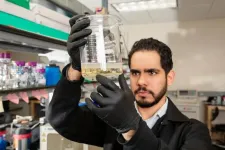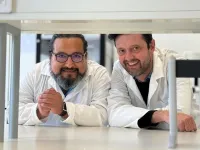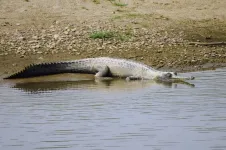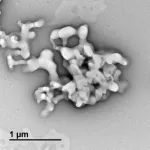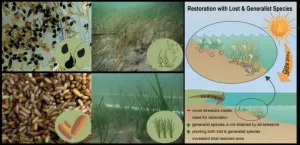Scientists find cancer-like features in atherosclerosis, spurring opportunity for new treatment approaches
NIH-supported findings could open up a new field of cardiovascular disease research using cancer therapies to combat the buildup of disease-causing plaque
2024-04-30
(Press-News.org) Researchers have discovered that the smooth muscle cells that line the arteries of people with atherosclerosis can change into new cell types and develop traits similar to cancer that worsen the disease. Atherosclerosis is characterized by a narrowing of arterial walls and can increase risk of coronary artery disease, stroke, peripheral artery disease, or kidney disorders. The findings, supported by the National Institutes of Health (NIH), could pave the way for the use of anti-cancer drugs to counteract the tumor-like mechanisms driving the buildup of plaque in the arteries, the major cause of cardiovascular disease.
“This discovery opens up a whole new dimension for our understanding about therapeutic strategies for the prevention and treatment of atherosclerosis,” said Ahmed Hasan, M.D., Ph.D., program director in the Division of Cardiovascular Sciences at the National Heart, Lung, and Blood Institute, part of NIH. “Previous research has suggested that atherosclerosis and cancer may share some similarities, but this association has not been fully described until now.”
Using a combination of molecular techniques in mouse models and tissue samples taken from patients with atherosclerosis, the researchers of the new study characterized the molecular mechanisms that drive the smooth muscle cells to transition into cancer-like cell types.
The researchers found increased rates of DNA damage and genomic instability – two hallmarks of cancer – in the converted smooth muscle cells of atherosclerotic plaque when compared to healthy tissue. Genomic instability is the increased tendency for DNA mutations and other genetic changes to occur during cell division.
Probing further, they also found that cancer-associated genes became more active as the smooth muscle cells were being reprogrammed into the cells that made up the plaque. Using a mouse model expressing a known cancer mutation accelerated the reprogramming and worsened atherosclerosis. Finally, treating atherosclerotic mice with the anti-cancer drug niraparib, which targets DNA damage, showed potential for preventing and treating atherosclerosis.
“In fact, we saw that niraparib actually shrinks the atherosclerotic plaques in mice,” said Huize Pan, Ph.D., assistant professor of medicine at Vanderbilt University Medical Center, Nashville, Tennessee, and first author of the study.
Muredach Reilly, M.D., professor of Medicine at Columbia University, New York City, and senior author on the study, explained that understanding the molecular mechanisms that are driving the transition of smooth muscle cells can provide opportunities to disrupt tumor-like pathways and change how the cell behaves, in turn preventing or slowing progression of atherosclerosis.
Study: Pan H, Ho SE, Xue C, et al. Atherosclerosis is a smooth muscle cell-driven tumor-like disease. Circulation. 2024. doi: 10.1161/CIRCULATIONAHA.123.067587
Funding: This study was supported by NHLBI grants: K99HL153939, R00HL153939, R01HL166916, R01HL113147, R01HL150359, and R01HL169766
END
ELSE PRESS RELEASES FROM THIS DATE:
2024-04-30
EL PASO, Texas (April 30, 2024) – An estimated 168 billion gallons of wastewater — or produced water — is generated annually by the Permian Basin fracking industry, according to a 2022 report by the Texas Produced Water Consortium. The major waste stream has proved both difficult and costly to treat because of the chemical complexity of the water.
In a new study published in the journal Water, researchers at The University of Texas at El Paso have identified a novel means of treating the wastewater generated by oil and gas production: bacteriophages.
Ramón Antonio Sánchez, a doctoral candidate within UTEP’s chemistry ...
2024-04-30
Open Targets, a public-private partnership dedicated to pre-competitive drug discovery research, today announced MSD, the tradename of Merck & Co., Inc., Rahway, N.J., USA, as the latest partner to join the consortium. Open Targets aims to accelerate the development of safe and effective medicines by leveraging cutting-edge technologies to identify, prioritise, and validate potential drug targets. MSD’s expertise in drug discovery will complement the strengths of the current partners: EMBL’s European Bioinformatics Institute (EMBL-EBI), the Wellcome Sanger Institute, GSK, Sanofi, Pfizer, and Genentech, ...
2024-04-30
Researchers at the University of Toronto have found a way to better control the preclinical generation of key neurons depleted in Parkinson’s disease, pointing toward a new approach for a disease with no cure and few effective treatments.
The researchers used an antibody to selectively activate a receptor in a molecular signaling pathway to develop dopaminergic neurons. These neurons produce dopamine, a neurotransmitter critical to brain health.
Researchers around the world have been working to coax stem cells to differentiate into dopaminergic ...
2024-04-30
Leuven (Belgium) 30/04/2024 - For the first time, researchers from VIB-KU Leuven, UZ Leuven, Janssen Pharmaceutica and multiple international collaborators have introduced quantitative methods and extensive confounder control to discover microbiome biomarkers in colorectal cancer development. While multiple microbial taxa have been put forward as potential cancer-associated biomarkers in the past, this new study uncovers obscured contributions that may have resulted in incorrect associations. The results have been published in Nature Medicine.
Cancer ...
2024-04-30
A pioneering study highlights the importance of carrion and scavengers in wetlands on a global scale. A study by researchers from the Ecology area of the Miguel Hernández University of Elche (UMH) and the Ecology department of the University of Alicante (UA) reveals the fundamental importance of scavengers and carrion in wetlands. The article, published in Biological Reviews, emphasizes that the benefits provided by scavengers far outweigh the potential drawbacks. Among their essential functions are the recycling and transportation of nutrients and the regulation of water quality, benefiting the entire ecosystem, from soil and plants to birds and mammals.
Historically, ...
2024-04-30
As a result, the researchers recommend updating the information requirements in the EU legislation, REACH. They also propose various approaches for evaluating chemical substances to ensure that all available information is fully utilized.
Researchers from DTU National Food Institute and the University of Southern Denmark have screened the scientific literature for the Danish Environmental Protection Agency to find substances showing signs of endocrine disrupting properties and thus being potentially harmful to humans and ...
2024-04-30
A substantial proportion of the world’s population remains willing to get vaccinated against diseases including COVID-19, according to a new survey across 23 countries that represent more than 60% of the world’s population. The study, published in Nature Medicine, was co-led by the Barcelona Institute for Global Health (ISGlobal), a centre supported by “la Caixa” Foundation, and the Graduate School of Public Health and Health Policy of the City University of New York (CUNY SPH).
The severe human impact of the COVID-19 pandemic led to the rapid research and development of safe and effective vaccines based on existing models, ...
2024-04-30
An entirely new approach to inhibiting DNA-cleaving enzymes works through the aggregation of an otherwise non-toxic molecule. This Kobe University discovery may lead to a much-needed method for curbing Streptococcus growth.
Enzymes are the body’s tools to make almost all reactions happen. But the same is true for bacteria like Streptococcus, which causes toxic shock syndrome, a rapidly progressing and deadly condition. When the body’s white blood cells try to capture the bacteria by casting nets made out ...
2024-04-30
What do the flow of cars on a highway and the movement of bacteria towards a food source have in common? In both cases, annoying traffic jams can form. Especially for cars, we might want to understand how to avoid them, but perhaps we've never thought of turning to statistical physics, as Alexandre Solon, a physicist from Sorbonne Université, and Eric Bertin, from the University of Grenoble, both working for the Centre national de la recherche scientifique CNRS, have done. Their research, recently published in the Journal of Statistical Mechanics: Theory and Experiment (JSTAT), has developed a one-dimensional mathematical model ...
2024-04-30
New research demonstrates that seagrass habitat restoration can be enhanced by including other grasses in addition to the declining or lost species and – ultimately – that restoration efforts must proactively select species that can withstand current and intensifying stressors driven by human activities and climate change.
Rising global temperatures combined with centuries of humans working within our seascapes has reshaped coastal ecosystems. Rebuilding or restoring coastal habitat is becoming ...
LAST 30 PRESS RELEASES:
[Press-News.org] Scientists find cancer-like features in atherosclerosis, spurring opportunity for new treatment approaches
NIH-supported findings could open up a new field of cardiovascular disease research using cancer therapies to combat the buildup of disease-causing plaque
